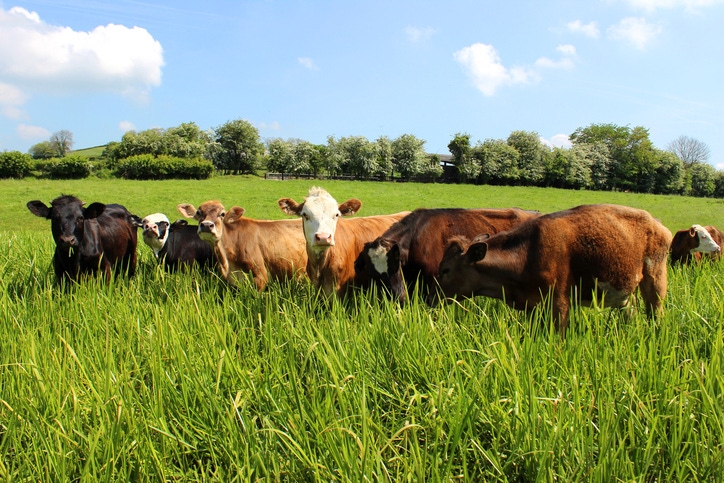June 21, 2019

Farmers who planted cover crops on prevented plant acres will be permitted to hay, graze or chop those fields earlier than November this year, USDA announced.
USDA’s Risk Management Agency adjusted the 2019 final haying and grazing date from Nov. 1 to Sept. 1 to help farmers who were prevented from planting because of flooding and excess rainfall this spring.
“We recognize farmers were greatly impacted by some of the unprecedented flooding and excessive rain this spring, and we made this one-year adjustment to help farmers with the tough decisions they are facing this year,” said Under Secretary for Farm Production and Conservation Bill Northey. “This change will make good stewardship of the land easier to accomplish while also providing an opportunity to ensure quality forage is available for livestock this fall.”
RMA has also determined that silage, haylage and baleage should be treated in the same manner as haying and grazing for this year. Producers can hay, graze or cut cover crops for silage, haylage or baleage on prevented plant acres on or after Sept. 1 and still maintain eligibility for their full 2019 prevented planting indemnity.
“These adjustments have been made for 2019 only,” said RMA Administrator Martin Barbre. “RMA will evaluate the prudence of a permanent adjustment moving forward.”
Other USDA agencies are also assisting producers with delayed or prevented planting. USDA’s Farm Service Agency is extending the deadline to report prevented plant acres in select counties, and USDA’s Natural Resources Conservation Service is holding special sign-ups for the Environmental Quality Incentives Program in certain states to help with planting cover crops on impacted lands.
Reaction
“I applaud the USDA for acting quickly on our request to provide relief for Michigan farmers affected by record rainfall,” said Sen. Debbie Stabenow, D-Michigan, ranking member on the Senate Agriculture Committee. “It’s just common sense to help farmers get the best use out of their land after they were unable to plant their crops this year. I urge the USDA to continue along this path and ensure all impacted farmers are eligible for disaster assistance.”
Large swaths of Michigan farmland have seen precipitation measurements at double their normal rates.
“Farmers are in need of options and common-sense flexibility given this year’s disaster situation, where we have millions of acres of farm and rangeland impacted. The changes announced today by USDA will go a long way toward providing farmers and livestock producers with options to address the forage situation in many parts of the country,” said Rep. Collin Peterson, chairman of the House Agriculture Committee.
Source: USDA Risk Management Agency, Office of Sen. Debbie Stabenow, Office of Rep. Collin Peterson, which is solely responsible for the information provided and is wholly owned by the source. Informa Business Media and all its subsidiaries are not responsible for any of the content contained in this information asset.
You May Also Like




